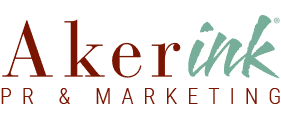Taking on the role of media spokesperson is no small task. As your relationship with the media develops, you may find yourself talking with journalists relatively often depending on current events or notable happenings in your industry.
You likely have expectations regarding your interactions with the media: a journalist will interview you and write a story that presents you and your company in a positive light. However, it’s important to understand what the journalist expects of you as a spokesperson. Journalists are looking for an objective source who will provide expertise about an issue or trend that’s relevant to their audience. Ideally, you will meet somewhere in the middle.
Being an effective spokesperson will result in better relationships with journalists and, as a result, an increased likelihood your company will be featured in their coverage. Read on for key tips to maximize your position as a spokesperson:
Be Timely
It’s one thing to provide great information, and it’s another to provide it in a timely manner. It is essential that you are responsive and provide information to the media as quickly as possible to maximize your opportunities for coverage. This includes quickly responding to an interview request, being readily available for the interview, and being timely with follow up. There’s always a chance that a journalist will use another source because they were quicker to provide information. After all, a journalist can’t change the time of evening news or when their magazine hits the press. They have constraints, too, and can’t always work around a source’s schedule.
Be Prepared
Whether you’re new to serving as a spokesperson or if you’re a seasoned veteran, preparation is key before any media interview. It’s important to go into every interview with a series of talking points that touch on your company’s key messages and address the journalist’s questions. Do your best to create custom talking points that are catered to each individual publication. Audiences may differ across publications, and you’ll make the journalist’s job easier if you’ve done some research.
Sometimes the trajectory of the interview doesn’t allow you to fit in each key message, and that’s ok. Let the interview flow naturally—with practice, you’ll learn to seamlessly incorporate your messages into each conversation with a journalist.
Be Topical
Try to connect your message to current events or trends, if possible. Journalists are drawn to story angles that are rooted in relevant statistics and data, so if you can tie your story to a new study or a recent report about your industry, you’re in good shape. Also think about common pain points or challenges that you help your clients overcome – that can be just as topical and address the issues that the media outlet’s audience faces as well.
Be Educational & Approachable
Oftentimes journalists will not be an expert in your industry. In fact, they may enter the interview without much knowledge at all. Resist the urge to talk technical right away. Take the first few minutes to provide background about your company, industry and the issue at hand so the journalist understands. Providing a bit of education will help with the quality of the final story and position you as a go-to source.
Be Ready with Follow-up Stories
In your interview prep, take time to brainstorm a few follow-up stories that could help expand coverage on the topic you’re interviewing about. Journalists appreciate this proactivity—they’re always on the hunt for great story ideas.
As you build relationships with different journalists, you’ll become more familiar with the types of stories they cover and will be able to offer more suggestions.
Be a Support and Resource Long-Term
As a spokesperson, your goal is to become a go-to source for journalists—you want them to think of you when they need an expert in your industry. How do you get to this point? By consistently providing quality information in a timely manner. Over time, you’ll build trust with the journalist and they may reach out to you when they need a source for a story.
As you become more comfortable in your role as a spokesperson, you’ll find that building media relationships can be an enjoyable experience that’s beneficial for both your company and the journalist. Take the time to nurture your media contacts and you’ll be rewarded!






